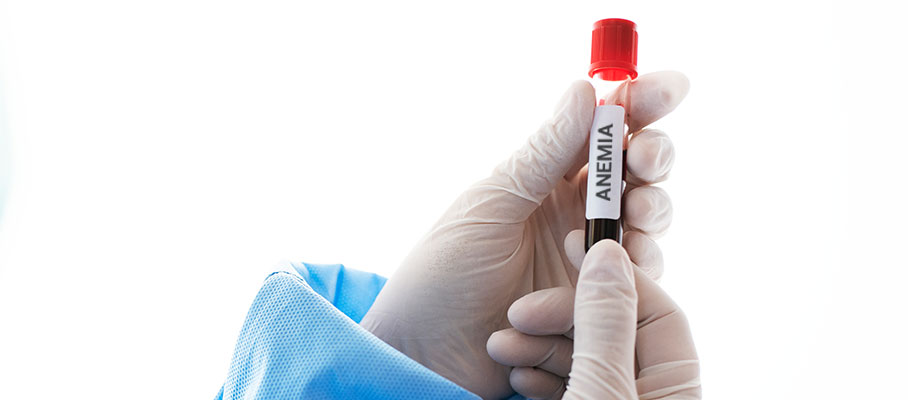Disease
Could you have iron deficiency anemia? Find out here
10500 Views
0

Iron is an essential nutrient that performs several vital functions in your body. Most importantly, it helps form hemoglobin, the protein in the red blood cells (RBCs), and facilitates oxygen transport in your blood from the lungs to body organs. It is also an integral part of many important enzyme systems. Enzymes are biological catalysts that modulate different metabolic activities in your body. A lack of sufficient iron levels can cause anemia, and iron deficiency anemia (IDA) is by far the most common cause of anemia.[1] As stated by the World Health Organization (WHO), two billion people are affected by anemia in the world and half of these anemic cases are due to iron deficiency.
Could you have iron deficiency anemia?
The symptoms of iron deficiency anemia can be so subtle at first that you may not even notice them. The American Society of Hematology (ASH) says, most people do not even realize they could have mild anemia until they get routine blood work done.
You may experience some or all of the below-mentioned symptoms if you have moderate to severe iron deficiency:
- Tiredness and fatigue
- Weakness
- Pale skin
- A tingling or crawling feeling in the legs
- Cold hands and feet
- Fast or irregular heartbeat
- Brittle nails
- Headaches
- Shortness of breath
- Dizziness
- Weird cravings to eat ice or clay
Not just these, iron deficiency anemia increases the risk for preterm labor, low birth weight, and even infant mortality, and thus poses significant consequences for future generations.[3] Deficiency of iron also leads to decreased intellectual performance among school children. If you are experiencing any of the above-mentioned symptoms and doubt that you may not be taking enough iron in your diet, do get your iron levels checked through a lab test and consult a doctor to get medical advice. Pregnant women should be especially cautious about having sufficient iron levels in their blood.
What can cause an iron deficiency anemia?
Inadequate iron intake: Unlike some vital substances, your body cannot produce iron and thus it must be absorbed from the foods you eat or from iron supplements. If youare not eating enough iron over an extended amount of time, you can get deficient in iron.
Inability to absorb iron: Evenif you take sufficient iron in your diet, your body might not be able to absorb and utilize iron.Certain disorders or surgeries like celiac disease, gastric bypass can impair iron absorption in your body.
Pregnancy or blood loss due to heavy periods: Blood loss during delivery or heavy menstruation are the most common causes of iron deficiency anemia in women.
Certain medical conditions that cause internal bleeding: Gastric ulcers, polyps in the colon or intestines, cancer of the colon, or injudicious use of some pain relievers can lead to internal bleeding and loss of iron from the body.
Who is at risk of getting iron deficiency anemia?
While anemia can affect men and women of any age, some people may run a greater risk of iron deficiency anemia than others, such as:
- Pregnant women
- People with poor unhealthy diets
- Women of childbearing age
- Vegetarians who fail to take enough iron-rich food
Think you could be at risk of iron deficiency anemia, be sure to talk to your doctor and discuss if blood testing or dietary changes can benefit you.
Which health tests can help diagnose iron deficiency anemia?
Complete blood count (CBC) test
A CBC is a routine blood work that measures the amount of all blood components including red blood cells (RBCs), hemoglobin, hematocrit, white blood cells (WBCs), platelets, etc. This simple blood test can provide insights into the iron levels in your blood and help diagnose iron deficiency anemia. Your hematocrit and hemoglobin levels tend to be low if your iron levels are low. Your RBCs are usually smaller in size than normal.
Other tests
A CBC test is usually confirmatory to know about anemia. However, your doctor might recommend certain additional iron studies tests to know about the cause and severity of your anemia. These blood tests will provide information around some specific parameters (such as ferritin, iron binding capacity) and help determine better treatment options.
You may also be advised of a fecal occult test or endoscopy to look for any internal bleeding.
While lack of iron can adversely affect many of your vital functions, excess iron can also be toxic to the body. So ensure to consume a recommended amount of iron only.























 WhatsApp
WhatsApp